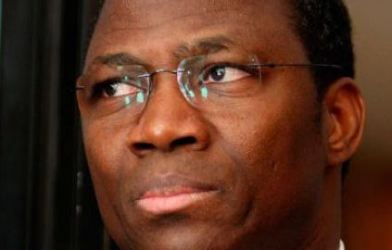Burika Faso: German expert doubts authenticity of key evidence against Bassolé
December 23, 2016 (KHARTOUM) – Darfur former peace mediator and former Burkina Basso’s foreign minister Djibril Bassolé is still under detention without charge, as a German acoustic expert dismissed that an audio document filed as the main element of charge against him be an authentic telephone recording.

The next day on 15 December the government issued a statement denied that the tapping is unusable. It further stressed that the parties have ten days to present their observations or “to file new demands for the purpose of further investigation or counter-expertise”.
Bassolé is accused of supporting a coup d’état against the interim government ahead of elections in September 2015 . However, the government has failed to produce an evidence to condemn him by a military court.
In November 2015, social media circulated a recording of an alleged telephone conversation about the coup d’état and how to support the putschists between Bassolé and his friend the speaker of the Ivorian National Assembly, Guillaume Soro.
In December 2015 the then Prime Minister, Yacouba Issac Zida, claimed that the tapped telephone recording had been authenticated. But, few days later, the security minister admitted publically that the recording had never been verified.
Nonetheless, the military commissioner officially lodged the contested recording as the only evidence against Bassolé, while his lawyers demand the rejection of this evidence saying its source is unknown and its content is unverified.
After a long hesitation the judge decided to consult Hermann Künzel, a German expert in acoustic investigations, who is also a consultant of the International Criminal Court, to analyze the telephone records.
A very close source to the file told Sudan Tribune that Bassolé and his lawyers didn’t receive a copy of the report yet. but were only briefed about its conclusion by the registrar of the military court.
He wondered why they were informed on 14 December while the report had been received on 24 November 2016. He added the registrar lied when he said it had been received on 5 December.
According to the briefing of the registrar the expert casted doubts on the claim that the audio file was a recording of telephone call.
“The report by Mr KÜNZEL indicates that, in view of the exceptional width of the frequencies of the recording containing the conversation (100 Hz to 3700 Hz), the recording was very probably passed through the Internet and not by the GSM whose frequencies Standards are established between (250HZ to 3200HZ),” said the source
Last February a French expert, Norbert Pheulpin, commissioned by Bassolé’s lawyer said the audio file cannot be presented as an integral recording of a telephone interception.
In some extracts published by Le Monde on 25 February 2016, the French expert speaks about a montage of ”probably three or four different telephone conversations,”
While the government military commissioner maintains that this audio document is well-founded, Bassolé lawyers contest the legality of such evidence pointing that no one can indicate the source and the origin of the recoding.
They also call for his release, saying the only crime he committed is to announce his candidacy for the presidential election.
Earlier this year, the highest court in Burkina Faso, the Court of Cassation, cancelled a decision by the military court refusing the presence of foreign lawyers to defend the former foreign ministers.
Also, the Court of Justice of the Economic Community of West African States (ECOWAS) considered as illegal the decision to prevent Bassolé from hiring foreign lawyers.
The government largely advertised the audio recording and used it to dissuade several leaders in the region who intervened demanding his release.
(ST)
